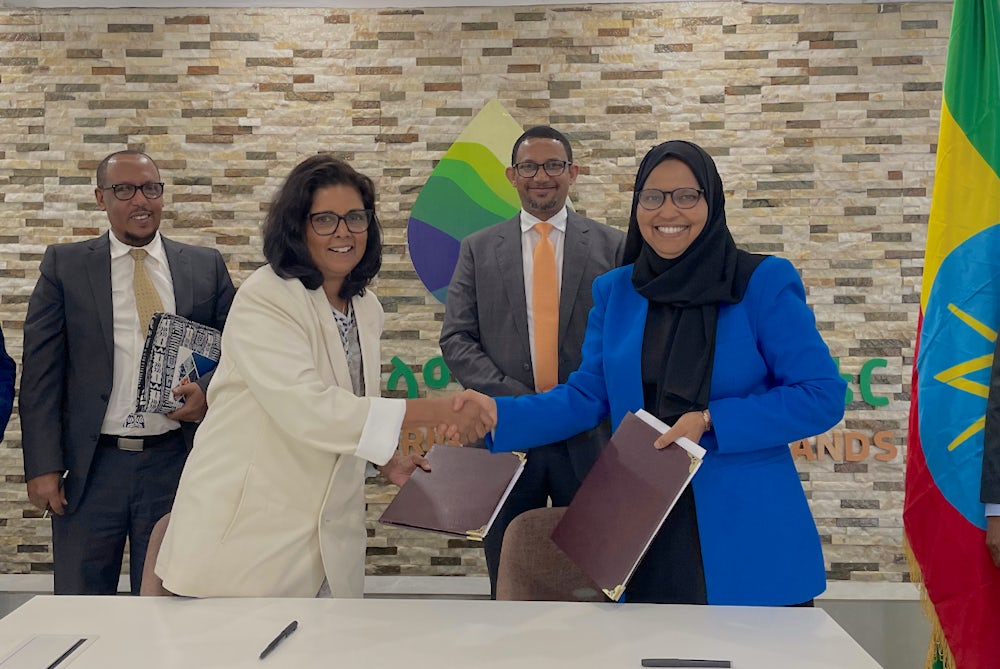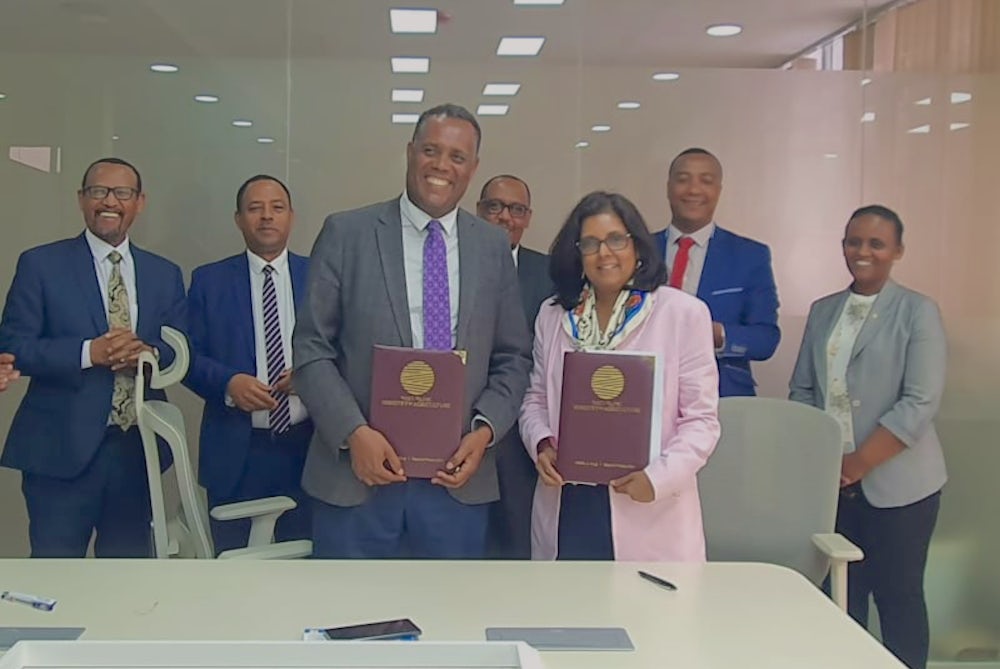At Heifer International, our programmatic model is focused on implementing solutions led by smallholder farmers and local partners. It’s a way of working we’re advancing in Ethiopia with the recent signing of two new Memorandums of Understanding (MOUs) with the national government.
The MOUs, signed in June 2023 with the Ministry of Agriculture and the Ministry of Irrigation and Lowlands, build on an existing strategic relationship and reflect shared objectives to strengthen agricultural and pastoral livelihoods, transform the agriculture sector and improve food security.

Agriculture is ripe with opportunity in Ethiopia — the sector is responsible for 64% of the country’s employment and nearly 40% of its gross domestic product. But compounding crises — ongoing ethnic conflict, hunger and displacement emergencies, 24% poverty rate, accelerating climate disasters — regularly shift resources away from development efforts.
Despite the challenges, the government is heavily invested in improving the lives of smallholder farmers, with agricultural development named a key priority area in its 10-year economic development plan launched in 2021.
Achieving synergy through partnerships and leveraging local expertise are essential to delivering effective solutions in this context — and to catalyzing the vision of those with the greatest stake in it.
“The government believes agriculture is an economic driver,” said Surita Sandosham, president and CEO of Heifer International, who was in Ethiopia for the MOU signing ceremonies. “Therefore, the way forward for Heifer is not to create parallel projects, but to build partnerships.”
“A program should never come out of someplace else into the country. It needs to grow from within.” — Surita Sandosham
Heifer International started working in Ethiopia in 2004 and has been providing technical assistance for the government’s flagship livelihoods initiative, the Lowlands Livelihoods Resilience Project, for more than two years. The project aims to bolster pastoral and agropastoral livelihoods according to the government’s Livestock Master Plan, Growth and Transformation Plan II and Climate Resilience and Green Economy Strategy.
As part of the project agreement, Heifer conducted comprehensive market system research, including a livestock production system assessment, value chain analysis and feed and animal health systems analysis. Heifer is now providing capacity building for government and project staff, developing co-managed markets, and identifying public, private and producer partnership opportunities to strengthen and commercialize the livestock production system.
“The main goal [of working alongside the government] is to establish a long-term partnership that ensures sustainable income gain for smallholders and pastoralists, and to introduce innovations and impacts at scale,” said Getachew Eshete, program coordinator for Heifer Ethiopia. “Co-creating and co-implementing projects and collaborating on common interests increases efficiencies and value for money.”

“When we work with the government, we are, in fact, partnering with them to work with smallholder farmers,” said Surita. “This government is very focused on taking care of its people. They’re very clear about their direction.”
The expansion of our partnership, formalized with the new MOUs, recognizes Heifer’s expertise in agriculture and highlights our commitment to be relevant to local needs, establish trust over time and be strategic about how we add value in specific operating environments.
“A program should never come out of someplace else into the country,” Surita stated. “It needs to grow from within.”
Through the agreements, Heifer Ethiopia will develop the National Lowland and Pastoral Program — a development plan for lowland and pastoral Ethiopia — and support commercialization of the livestock production system in pastoral areas through improved market systems, forage production and animal health service delivery.
Heifer will also work with both ministries to identify and implement innovations to engage women and youth in agriculture, and improve production, income, access to finance and utilization of technology in alignment with the country’s economic reform agenda. A third MOU to advance youth agri-entrepreneurship and improve the quality of the skills development system is under discussion with the Ministry of Labor and Skills.
